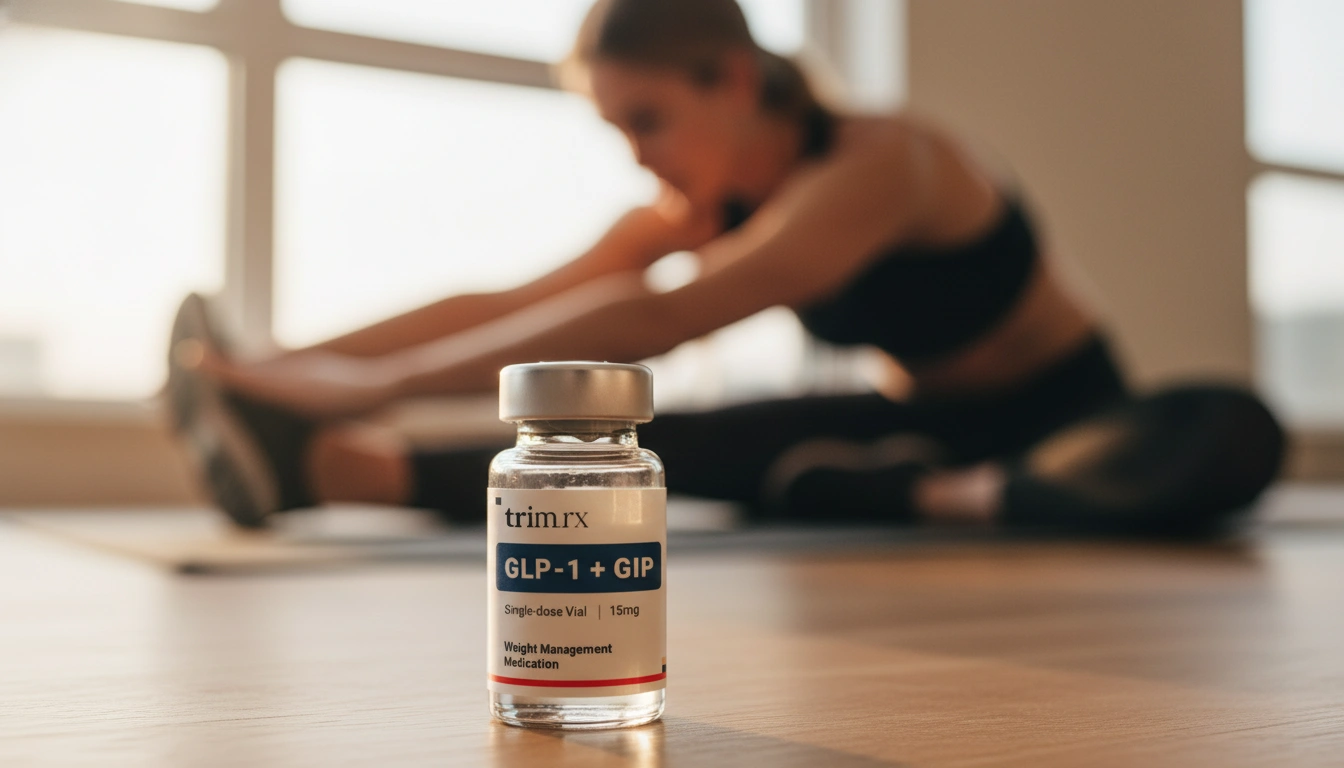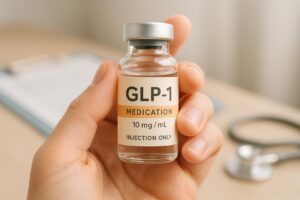Does GLP-1 Work for Everyone? Understanding the Variability in Responses to GLP-1 Medications

When it comes to weight loss, the journey can often feel like an uphill battle, with countless diets, exercise routines, and weight loss solutions promising quick results. Among the latest innovations in this realm are GLP-1 receptor agonists, such as Ozempic and Wegovy. These medications have gained significant attention for their potential to aid weight loss, but many people find themselves asking: Does GLP-1 work for everyone?
Our exploration into this question will delve into the science behind GLP-1 medications, the varying responses individuals may experience, and what factors contribute to those differences. By the end of this post, we aim to provide clarity on how GLP-1 medications function, why they may not produce uniform results, and what individuals can do if they find themselves in the non-responder category.
Introduction
In recent years, the spotlight has increasingly turned to GLP-1 receptor agonists as a viable solution for weight management and obesity treatment. With clinical trials reporting significant weight loss in many participants, the excitement surrounding these medications is understandable. However, it is crucial to acknowledge that not everyone who uses GLP-1 medications experiences the same level of success.
Statistically, while studies show that around 86% of participants in clinical trials achieve clinically significant weight loss, this leaves a notable percentage of individuals—around 14%—who do not. This discrepancy raises essential questions about the nature of weight loss medications and the factors that influence their effectiveness.
In this post, we will cover the following key areas:
- What Are GLP-1 Medications?
- Why GLP-1 Medications May Not Work for Everyone
- Factors Affecting Individual Responses to GLP-1 Medications
- How to Optimize Your Weight Loss Journey with GLP-1 Medications
- Alternative Options for Weight Management
By examining these topics, we hope to empower you with the knowledge necessary to make informed decisions about your weight loss journey, whether you are considering GLP-1 medications or exploring other options.
What Are GLP-1 Medications?
GLP-1 receptor agonists, including drugs like Ozempic (semaglutide) and Wegovy, mimic the action of the glucagon-like peptide-1 hormone in the body. This hormone plays a pivotal role in regulating appetite and glucose metabolism. When we consume food, GLP-1 is released in response, signaling feelings of fullness and reducing the desire to eat.
These medications are not only effective for weight loss but are also used to manage type 2 diabetes. By slowing gastric emptying and enhancing insulin secretion, GLP-1 medications help control blood sugar levels, making them a dual-purpose treatment option.
The FDA has approved several GLP-1 medications for weight management, recognizing their potential to facilitate weight loss in individuals with obesity. However, it is essential to remember that these medications are most effective when used in conjunction with lifestyle changes, including a balanced diet and regular physical activity.
Why GLP-1 Medications May Not Work for Everyone
While GLP-1 medications have shown promising results in many clinical trials, they are not a guaranteed solution for everyone. Several reasons contribute to why some individuals may not achieve the desired weight loss outcomes.
1. Individual Variability in Response
One of the most significant factors affecting the effectiveness of GLP-1 medications is individual variability. Each person’s body responds differently to medications due to differences in genetics, metabolism, and hormonal balances. For example, individuals with pre-existing conditions, such as type 2 diabetes, may experience a blunted response to GLP-1 medications compared to those without such conditions.
2. Side Effects
GLP-1 medications can come with side effects, particularly gastrointestinal issues like nausea, vomiting, and diarrhea. For some individuals, these side effects may be severe enough to lead them to discontinue use before fully realizing the medication’s weight loss benefits. Addressing these side effects through proper management strategies is crucial for individuals to stay on their prescribed regimen.
3. Medication Adherence
Success with GLP-1 medications often requires consistent adherence to the prescribed treatment plan. Missing doses or not taking the medication as directed can significantly hinder progress. Ensuring that individuals are educated about their medication and its importance can enhance adherence and ultimately improve outcomes.
4. Lifestyle Factors
While GLP-1 medications can aid in weight loss, they are not a substitute for healthy lifestyle changes. Maintaining a balanced diet, engaging in regular physical activity, and managing stress are crucial components that can enhance the effectiveness of these medications. If individuals neglect these lifestyle changes, they may not see the expected results from their treatment.
Factors Affecting Individual Responses to GLP-1 Medications
Understanding the factors that affect individual responses to GLP-1 medications can help shed light on why some people may not achieve their weight loss goals. Here are some of the key factors to consider:
1. Genetic Factors
Genetics can play a significant role in how individuals respond to medication. Research indicates that certain genetic variations can impact how effectively GLP-1 medications work in the body. Ongoing studies aim to identify these genetic markers, potentially paving the way for more personalized treatment approaches in the future.
2. Body Composition
An individual’s body composition, including their body mass index (BMI), can influence the effectiveness of GLP-1 medications. Generally, individuals with a higher starting BMI may experience more significant weight loss compared to those with lower BMIs. Understanding where one falls within this spectrum can help set realistic expectations for weight loss results.
3. Co-existing Medical Conditions
The presence of co-existing medical conditions, such as endocrine disorders or psychological factors, can complicate weight loss efforts. For example, individuals with untreated hypothyroidism or those struggling with eating disorders may find it more challenging to lose weight effectively, even while on GLP-1 medications.
4. Drug Interactions
Certain medications can interfere with the effectiveness of GLP-1 drugs. For instance, some psychiatric medications may promote weight gain, counteracting the intended effects of GLP-1 medications. It is essential for individuals to communicate openly with their healthcare providers about all medications they are taking to ensure optimal treatment outcomes.
How to Optimize Your Weight Loss Journey with GLP-1 Medications
If you are using GLP-1 medications but not seeing the desired results, there are several strategies you can implement to enhance your weight loss journey:
1. Consult with Healthcare Professionals
Regularly consulting with your healthcare provider is crucial for monitoring your progress and addressing any concerns. Open communication can lead to adjustments in dosage or alternative treatment options if necessary. Your provider can also help assess the impact of any co-existing conditions that may hinder your weight loss efforts.
2. Focus on Lifestyle Changes
While GLP-1 medications can aid weight loss, lifestyle changes remain the foundation of effective weight management. Emphasizing a balanced diet rich in whole foods, engaging in regular physical activity, and prioritizing sufficient sleep can significantly enhance the effectiveness of your treatment.
3. Monitor Your Progress
Keeping track of your weight loss journey can help you identify patterns and areas for improvement. Consider maintaining a journal to document your food intake, physical activity, and any side effects you experience. This information can be valuable for discussions with your healthcare provider.
4. Be Patient and Adjust Expectations
Weight loss is often a gradual process, and it is essential to set realistic expectations. Give your body time to respond to the medication, and don’t be discouraged if progress seems slow. If you find yourself experiencing a plateau, remember that it is a common occurrence in weight loss journeys.
Alternative Options for Weight Management
For individuals who do not respond to GLP-1 medications or prefer alternative approaches, several options are available for weight management:
1. Lifestyle Intervention Programs
Engaging in structured lifestyle intervention programs that provide support and guidance can be highly effective for individuals struggling with weight loss. These programs often incorporate nutrition education, exercise guidance, and counseling to promote lasting behavior changes.
2. Other Medications
If GLP-1 medications are not effective, healthcare providers may explore alternative weight loss medications. Options such as orlistat or phentermine may be suitable for some individuals, depending on their medical history and weight loss goals.
3. Bariatric Surgery
For individuals with severe obesity or those who have not achieved success through other methods, bariatric surgery may be a viable option. Surgical interventions can lead to significant and sustained weight loss, but they require careful consideration and medical evaluation.
4. Behavioral Therapy
Addressing emotional or psychological factors that contribute to weight gain can be essential for long-term success. Behavioral therapy, including cognitive-behavioral approaches, can provide individuals with tools to manage emotional eating and develop healthier habits.
Conclusion
In summary, while GLP-1 medications like Ozempic and Wegovy offer promising weight loss potential, they do not work uniformly for everyone. Individual responses vary due to genetics, existing medical conditions, adherence to treatment, and lifestyle factors.
At TrimRx, we believe in the power of personalized weight loss solutions. If you’re curious about whether GLP-1 medications may be suitable for you, we encourage you to take our free assessment quiz to explore personalized treatment options tailored to your unique needs.
Additionally, consider our quick-access supplements like the GLP-1 Daily Support and Weight Loss Boost to support your weight loss journey further.
By understanding the complexities of GLP-1 medications and the factors that influence their effectiveness, individuals can make informed decisions about their weight loss journeys and work towards achieving their health goals.
FAQ
What are GLP-1 medications, and how do they work?
GLP-1 medications are drugs that mimic the action of the glucagon-like peptide-1 hormone, which regulates appetite and glucose metabolism. They help control blood sugar levels and promote feelings of fullness, aiding in weight loss.
Why do some people not lose weight on GLP-1 medications?
Not everyone responds the same way to GLP-1 medications due to factors such as individual variability, medication adherence, side effects, and lifestyle habits.
How long does it take to see results from GLP-1 medications?
Patients are generally advised to give GLP-1 medications at least 12 weeks to evaluate their effectiveness. Significant weight loss is typically expected within this timeframe.
Are there alternative options for weight management if GLP-1 medications do not work?
Yes, individuals can consider lifestyle intervention programs, other weight loss medications, bariatric surgery, or behavioral therapy to assist with weight management.
How can I optimize my weight loss journey while on GLP-1 medications?
Consulting with healthcare professionals, focusing on lifestyle changes, monitoring progress, and being patient with results can help optimize your weight loss journey.

Transforming Lives, One Step at a Time
Keep reading
Tracking Progress With GLP-1: What To Measure
Learn which metrics to track on GLP‑1 therapy—weight, waist, blood sugar, lipids, side effects, and non‑scale wins—and how often to monitor them.
Fatigue Solutions for Ozempic and Wegovy Users
Hydration, protein-rich meals, light activity, and better sleep can reduce medication-related fatigue and help maintain energy during weight-loss treatment.
GLP-1 Medication Side Effect Checker
Worried about GLP-1 medication side effects? Use our free checker for Semaglutide, Liraglutide, and more to learn what to expect and stay informed!



